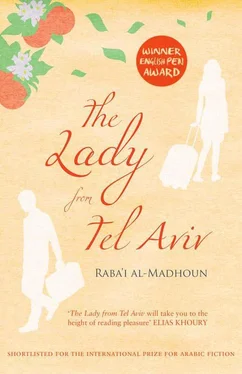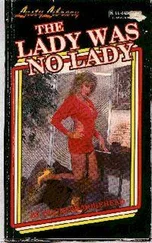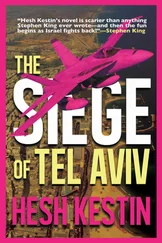‘Adel and Arna sit next to one another throughout the flight, each of them going over old memories in their own minds. Depressing, sad memories. Unsettling ones, haunted by feelings of fear and apprehension, curiosity and defiance.’
Dana does not seem terribly interested in hearing much more of the tangential story — and she cuts me off. ‘Less detail, more plot, please. Does Adel meet Leila?’ She punches me on the leg and a man sitting behind us clears his throat loudly to voice his displeasure. Dana lowers her voice now, ‘Come on — cut to the chase.’
‘I still haven’t decided whether Adel and Leila find each other or not. I hope to figure that out while I’m in Gaza. Anyway, that’s the general idea of the novel — even though I don’t know how I should end it.’
‘What’s holding you back?’
‘Nothing. I just prefer to wait until my trip is over before I write the ending. That way I can develop the second narrative thread my wife suggested, the story of what happens during my trip and what I experience. It might give me an opportunity to talk with my novel’s hero about his future with Leila. And together we might figure out an ending that joins the two stories. I usually like to talk to my characters about the basic issues in their lives. And then there’s also the possibility that something might surprise me on the trip.’
She looks up at the small lamp above our heads and studies it for a few moments, then turns to me and adds, ‘I’ve got an idea for the title of this novel that’s still sitting in the belly of its mother. One House, Two Shadows. What do you think?’
‘ One House, Two Shadows . Hmm.’
I pretend to think about her suggestion. My fingers curl around my chin like a director unconvinced by the performance of his actors. She looks at me and I continue, ‘Hmm.’
Finally, she cuts me off midstream. ‘Listen, in this country you and me are headed to together…’ There’s a note of nervousness that makes her voice quaver. ‘In this country where you and I will separate and go our own ways, there is only one land. Only one place to live, only one house. Even so, when the sun rises over the place and casts its rays across the land, you see two shadows. Walid, you and I are two shadows thrown together in a single place. What happened to my people cast black shadows over yours. What’s happened to you makes the shadows over us darker still. We are two peoples who will never be at ease. And whenever things seem to be calming down, they get even worse.’
‘One house that has two shadows. It’s true. Throughout history, this land was a field for sowing shadow and light. Only in their essential opposition do light and shadow take shape and last. Look at shadow. It’s born in light, and it dies in darkness. What a strange, fragile thing: it comes to life as soon as light is born, and disappears when the light dies. Shadow is patient. It’s like Job. It bears us and perseveres when it is high noon and our footsteps crush the shadows underfoot. You don’t know Job, do you? He’s a prophet who, people believe, suffered from flesh-eating worms. Like Alexandrians, Gazans celebrate Job each year by going and swimming in the sea. They believe that Job used to go on a certain Wednesday each year to bathe himself in the sea, knowing that the saltwater would heal his burning wounds, and cleanse his body for an entire year.
‘You know, after marrying my father, my mother did not get pregnant for a whole year. She was a young girl. Thirteen. The women in Asdud told her to bathe in the sea on Job Wednesday. They told her to be like the Virgin Mary and give herself to the first wave that crashed over her body. They told her to sing a little song seven times to the sea while she was doing this:
Oh Sea, Oh Wave-maker,
Fill my belly with a little one,
My husband will divorce me,
If I don’t bring him a son!
‘You’re laughing! You’re going to laugh even more when I tell you my mother began to doubt whether the sea really had answered her prayer and made her pregnant with me. Once she tried to test her strange hypothesis, and began to tell my father, ‘You know, Abu Walid, it’s not impossible that the sea impregnated me.’ My father laughed and said: ‘You really are crazy! You believed those women — you thought you were the Virgin Mary? If the sea had impregnated you, wouldn’t Walid’s eyes be blue?’ My mother was stunned. She was holding me in her arms and looked down at my eyes, then said: “You’re right, Abu Walid. This boy’s eyes are as black as the night.” It’d make my mother and father laugh whenever they remembered that.’
Now Dana and I are laughing about it too. She turns to me and, searching for the blackness of the night in my eyes, says: ‘You people have some strange traditions.’
‘Dana, our country is bursting with history and languages and war, magic and facts and fables, prophets and saints and liars and sinners. And together, all these things have created a great human tradition. On top of this, they’ve also created a long chain of catastrophe and ruin. I do like the title you’re proposing for my novel. I thank you for giving it to me. It turns out you’re a novelist too.’
‘And you’re a philosopher. By the way, if I ever marry and can’t get pregnant, I’ll head to the sea in Tel Aviv on a Wednesday, just like your mother did. I’ll swim in the sea in the early morning and again at sunset so I can have twins. But let’s talk about you, not your book.’
‘OK. I’ve lived in London for about eleven years. I hate violence in any form.’ If I were in charge of recruiting for Mossad, I would reject Dana without a second thought, even though clearly she’d have no problem getting the enemy to fall for her.
‘I love life and people and peace. But tell me—’
‘Yes?’
‘If I asked you to send me something you’ve written, would you? Would you send some of your writing to an Israeli woman you met on a plane?’
‘Only if you admit—’
But before I can tell her what I want, we are interrupted by a stewardess. ‘Would either of you like a glass of water?’
We answer with one voice: ‘Thanks.’ And then we forget what it was we were talking about, and our confessions hang in the air like unspoken confusion.
I take a pen and piece of paper out of my trouser pocket, and ask her to write down her email address. She does not hesitate. I take the paper from her hand and rip off the bottom corner. I write my email address on it and give it to her. She looks at the paper for a bit, then stuffs it into her little bag. ‘I’d love to look at something you’ve written, and we can write to each other. We might even become friends. Who knows?’
‘Good — I’ll send you some of what I’ve translated into English.’
‘I promise to write to you, to make sure you arrive in Gaza safely.’
I put the paper back in my pocket. I have no idea whether I really will send her anything, or whether she will really follow through on her promise to write. But in any case, when I go back to writing One House, Two Shadows , it will be with a completely different pulse.
This seems like a natural place to end the conversation for a while, but I decide instead to return to the story she had begun to tell, the story that had begun, in fact, with her weeping.
‘Dana, if I may ask, you said you had come to London because of your Ukrainian boyfriend. I’m curious: does that mean he moved back?’
She exhales before picking up the story. ‘Remember that Lebanese restaurant on Edgware Road? The recommendation from Dani’s Arab friend?’
‘“Dani” …?’
‘Yes. It was the name I gave him when he moved to Israel. “Daniel”.’
Читать дальше












